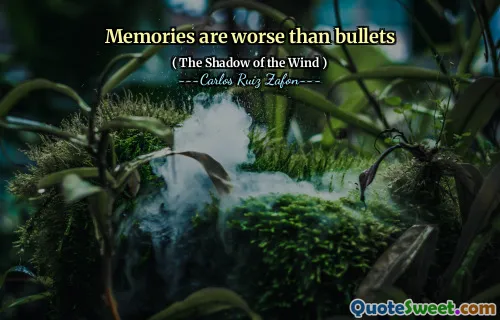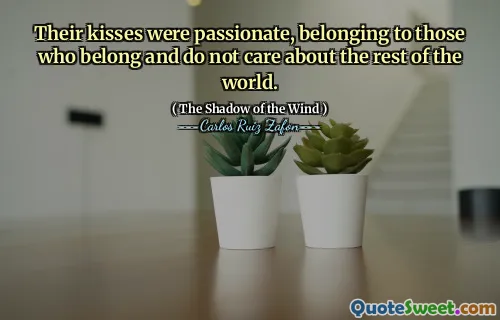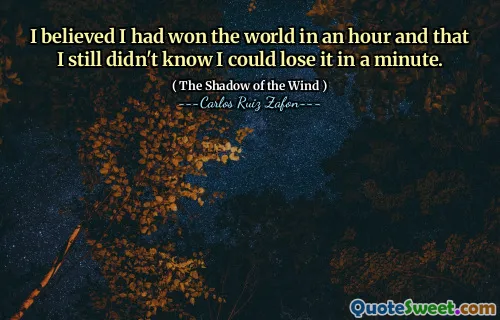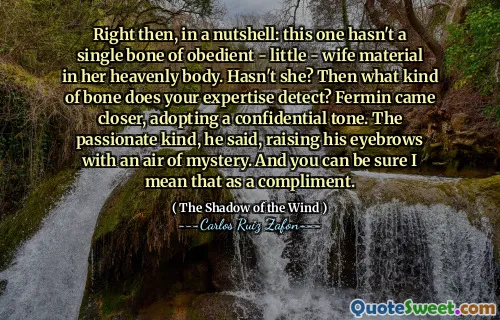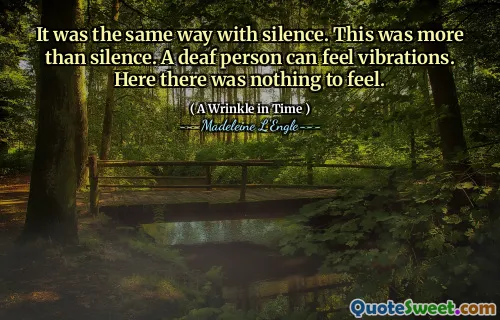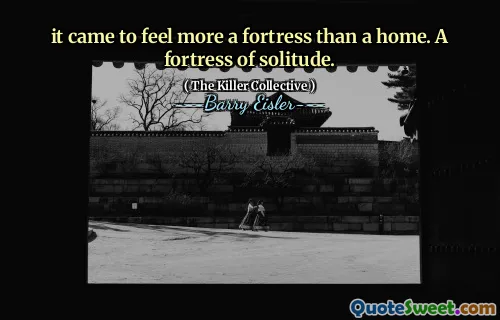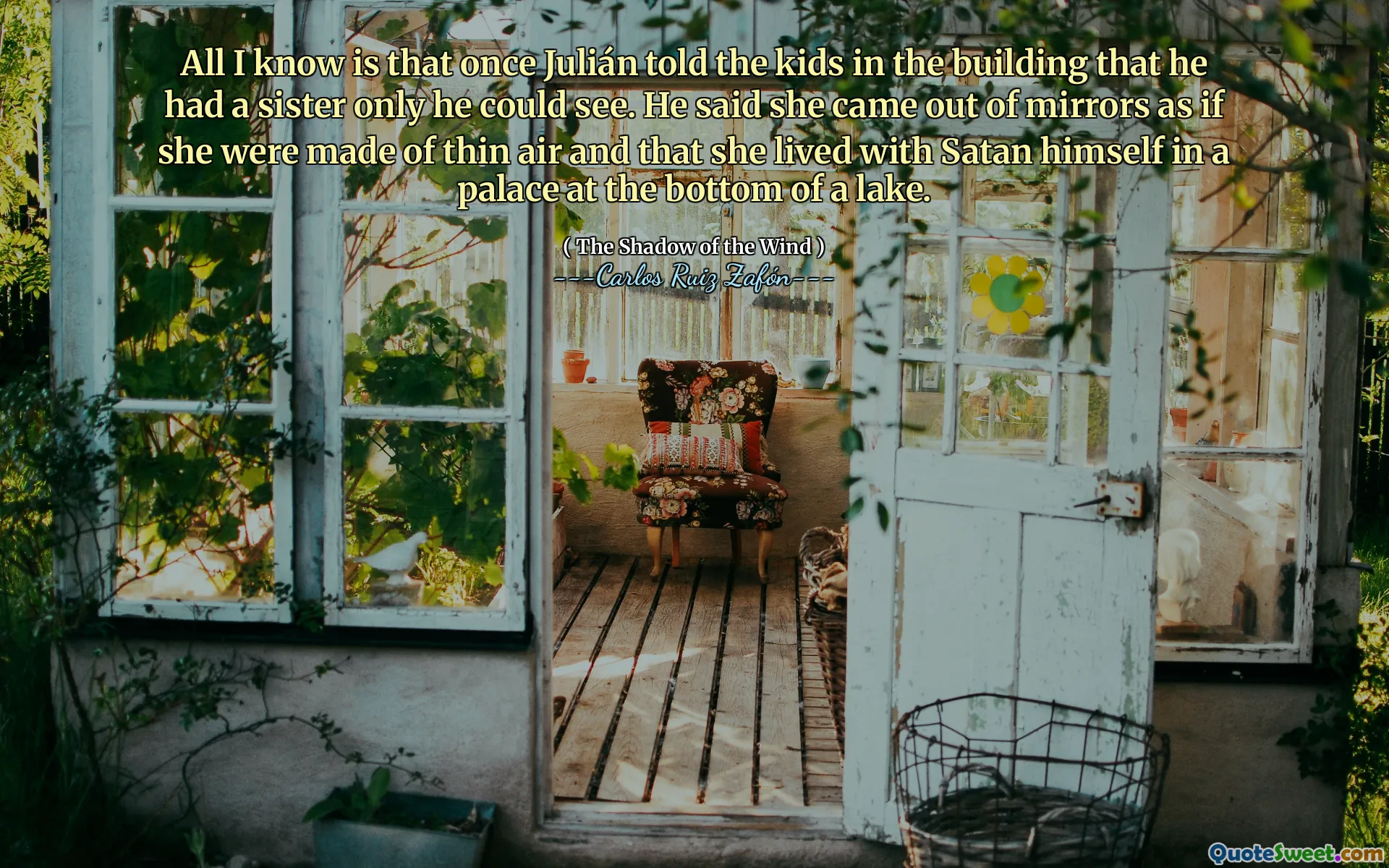
All I know is that once Julián told the kids in the building that he had a sister only he could see. He said she came out of mirrors as if she were made of thin air and that she lived with Satan himself in a palace at the bottom of a lake.
This quote evokes a haunting, almost spectral atmosphere where the boundaries between reality and imagination blur. Julián's tale of a sister visible only to him, materializing from mirrors like a being of smoke or air, introduces themes of isolation, otherness, and perhaps the burden of secret knowledge or unseen companions. The imagery of a palace at the bottom of a lake inhabited by Satan himself imbues the story with a gothic, mythic quality, suggesting hidden depths of darkness beneath the surface of everyday life. It reflects the human tendency to create narratives or personifications for experiences that seem inexplicable or alienating. Moreover, this story captures a childlike sense of wonder and fear, where mirrors become portals to unknown realms and reflections are more than mere optical phenomena—they are gateways to the supernatural. The blend of fantasy and subtle menace calls to mind the ways stories shape our understanding of the world, how they offer comfort or unleashing of inner fears. From a psychological perspective, Julián’s sister could represent an unseen facet of his identity, a manifestation of loneliness, or the onset of an internal struggle. The lake palace symbolizes a watery abyss, often linked to the subconscious, where peril and allure intermingle. Carlos Ruiz Zafón's work frequently grapples with memory, secrets, and the shadows that haunt human experience; this quote embodies that melancholic and mysterious essence, inviting readers to probe what lies beneath surface stories and appearances, and to confront the unsettling power of unseen worlds.
